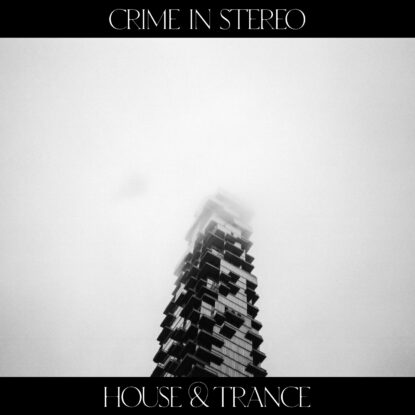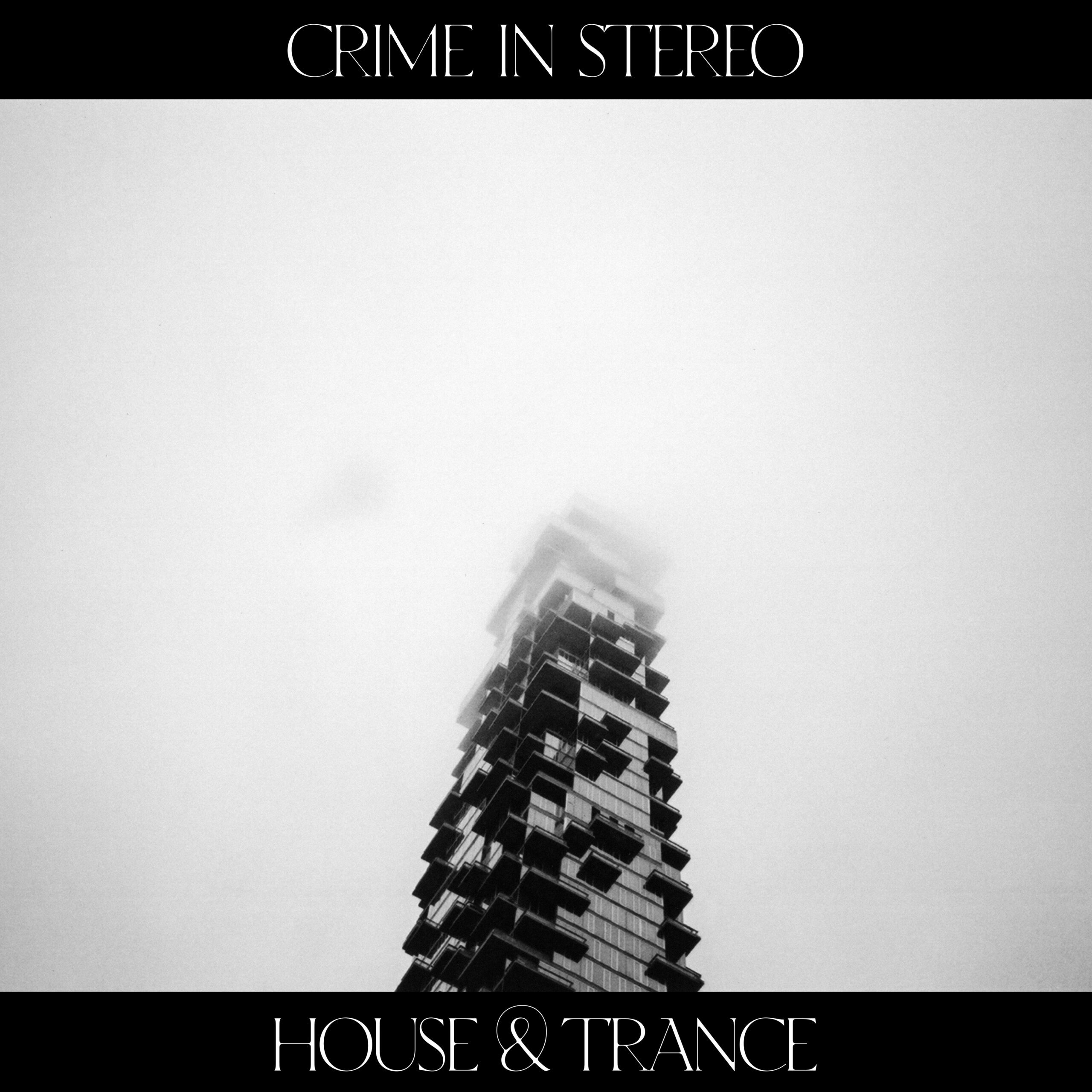
It’s been 13 years since the last Crime In Stereo record. But although House & Trance is the first new album the band has released since 2010’s I Was Trying To Describe You To Someone, it’s not actually the first album they’ve made since then. Back in 2016, the band—now comprised of Kristian Hallbert (vocals), Alex Dunne (guitar/vocals), Gary Cioni (guitar), Eric Fairchild (bass) and Brett Romnes (drums)—completed approximately 80% of a new album before abandoning it. And while Dunne says it will probably see the light of day sometime in the future, going through that process was necessary in order to make this collection of songs. “It wouldn’t have been the record that people wanted,” he explains, “and it wouldn’t have been representative of us and where we were at, so we scrapped all of it. There’s nothing from that album on this one. We started again from scratch and did something we felt was representative of what we were capable of, as opposed to sounding like [2007 album] …Is Dead Part Two. Which is cool, but it’s also a record we made a long time ago. Honestly, I think this is the album we should’ve been making.”
Indeed, House & Trance feels like the natural next step for Crime In Stereo. It was entirely self-produced by the band (outside of it, both Romnes and Cioni are acclaimed and accomplished producers, which made doing it themselves much easier), and flows on so well from their past that it’s almost like the intervening decade and a bit hasn’t happened, that this is actually parallel universe circa 2012 where band didn’t actually call it a day (however briefly) or stop writing new music. At the same time, it’s also very much a record that couldn’t exist had all those years not happened, had the world not taken a turn down an even darker path than it was already on. Recorded, often in bursts of spontaneous improvisation, at both Romnes’ and Cioni’s studios—The Barber Shop in Hopatcong, NJ and Sound Acres in Woodbridge, NJ, respectively—and then finished at a studio Fairchild (who owns a pro audio company responsible for the NYC Marathon and NYC SummerStage series) purpose-built in his apartment, these songs not only sound sonically incredible, but are riddled with the anguish of life and existence in 2023, both musically and lyrically. They’re not just reflective of these times—the effects of late-stage capitalism and neoliberalism, the encroaching dominance of fascism within the US political system, the increasing alienation and isolation that comes from the purposeful eradication of community by corporate politics—but of the immense human collateral damage that comes with all of that.
You can’t help but feel—really feel—the cost of that damage in the glowering, monochrome tones of opener “Pensioner” and its very first line, when Hallbert intones: ‘Eventually, we will all be dead.’ Yet as much is it’s symbolic of the universal environmental and systemic crises the world faces right now, it also operates—as Crime In Stereo songs always have—on a more personal level. Because towards the end of making the album, Dunne had to be rushed in from a session for emergency surgery after developing a septic infection from an abscess that kept getting misdiagnosed.
“Basically,” he remembers, “the other guys were like, ‘You have to get out of here. You’re purple. You look like you’re actually dying.’ So I went in and they sent me in for MRIs. At this point, we’d been in the studio working every day on this, and this was six or eight weeks into me having this condition and I was just dealing with it. But when I finally got the MRI they were like, ‘Oh, this could have killed you any minute. It could kill you right now. You need emergency surgery tomorrow morning.’”
Understandably, that brush with mortality—exacerbated because Dunne had a son who was just four months at the time—seeps into these songs. There are references to being consumed or destroyed by the sun, for instance, in “House / Trance”—a wonderful blast of ominous, hyperactive melancholy—as well as the dour dreaminess of final track (and ‘tribute’ to the band’s home of Long Island) “Skells”. Indeed, this record often feels like it’s on the verge of a world-ending implosion. Within that apocalyptic setting are contained other catastrophes and human ills—the stuttering post-hardcore of “Superyacht Ecopark” offers an incisive takedown of the billionaire mindset where wealth is accumulated at the expense of humanity, “Hypernormalisation” analyses the apathy of people in the face of their imminent demise, and “Books Cannot Be Killed By Fire” turns its acerbic eye to recent and ongoing Republican efforts to whitewash American history and restrict access to its truth. And while those songs, and this album as a whole, offers a scathing indictment on the state of the union, it wasn’t actually intended to be overtly political. That’s just what it became as an accurate reflection of the times and what the powers that be are doing.
“It’s so exhausting being a reasonable human being in 2023 in the United States of America. It’s exhausting looking around and being like, ‘What’s the fucking matter with you people?’ Like, I’m not taking ludicrous positions on extreme political outlooks. It’s just like, ‘Hey, can you stop tearing those babies away from their parents and putting them in cages?’ Is that an outlandish position to take? Can people have healthcare? Can people not get shot in school or in church or at the goddamn mall or in a movie theater? But you say things like that and then other people are like, ‘Oh, you’re taking a political position.’ It’s so fucking insulting on a human level.”
Yet for all the righteous anger about the big issues that inspired these songs, there’s something very vulnerable and human at their core—namely the struggle to exist in an increasingly dystopian world when the odds are already stacked against you. Interestingly, that’s what inspired the album’s title. Not only does it serve as a double entendre about music (and the band’s refusal to be pigeonholed into the hardcore/post-hardcore scene), but it captures the perseverance that it takes to merely survive in the wretched world humans have made for themselves. “It’s something artists in America have been talking about for 70 years,” says Dunne. “But it’s only getting worse. We’re not moving towards the solution. We’re moving towards worse outcomes. Is that feeling of resignation what I want people to take away from this record? No, I wouldn’t advocate for that. But capturing it, and trying to express that condition, is what this record feels like. It’s my feeling of having bought a house and having a child and being in that classic, post-modern, middle-aged, suburban ennui, where all your energy and focus basically has to go to maintaining your bank loan so you can still possess and live in this house so your fucking family isn’t out on the street. But that feels like you have these blinders on and are in a trance, just focused on the constant anxiety and stress of your living situation.”
House & Trance, then, continues that perennial conversation, as it simultaneously continues the band’s own story. Yet while it was born from bleakness, from hopelessness, from brushes with death and out of a failing society and country, its very existence rages against everything that made it, offering a significant sense of hope and meaning, of beauty and salvation, of a future not yet written off.
Latest Release
Online Store
News & Updates
-
CRIME IN STEREO ANNOUNCE NEW ALBUM “HOUSE & TRANCE” OUT OCTOBER 27TH
August 29, 2023It may have been 13 years since the last record, but Crime In Stereo are back with the ann.
Contact
Publicity:
US / UK: Hayley Connelly
Europe: Denise Pedicillo
AUS: Janine Morcos
Booking: Jason Parent
Management: Richard Fernandes



